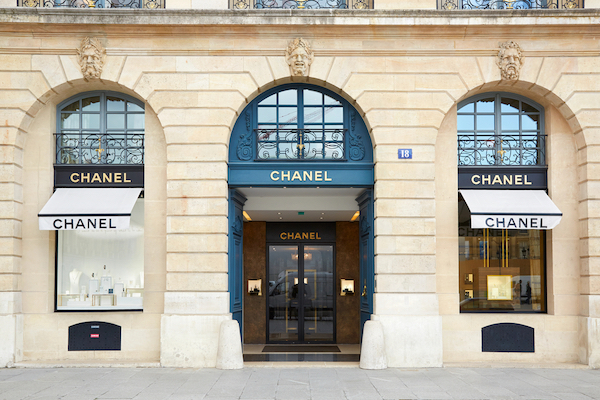“Resellers of brand-name goods must make a good-faith effort to verify that the items they offer for sale are, in fact, the real McCoy.”
 Fashion is a brand-driven industry, and few brands in the fashion space carry the same cachet as Chanel. But how much control do brands like Chanel have over merchants who resell name-brand items in the secondary market?
Fashion is a brand-driven industry, and few brands in the fashion space carry the same cachet as Chanel. But how much control do brands like Chanel have over merchants who resell name-brand items in the secondary market?
The answer, according to a federal jury in the Southern District of New York, is “Quite a bit.” The jury awarded Chanel $4 million in statutory damages on Chanel’s claims of trademark infringement, false association, unfair competition, and false advertising related to What Goes Around Comes Around’s (WGACA) reselling and marketing of Chanel products. The plaintiffs prevailed on all claims.
Throughout the six-year litigation, the defendants tried to portray the dispute in David vs. Goliath terms, with a relatively small retailer defending itself from an overreaching global corporation. But the jury ultimately disagreed. After nearly a month-long trial, the jury decided that WGACA failed to verify that its resale items were legitimate, and WGACA acted with “reckless disregard” in its use of Chanel’s trademarks and falsely implied a connection with Chanel in its marketing.
Jury Verdict Settles Long-Running Dispute
WGACA resells previously owned luxury goods with a 100% authenticity guarantee from its two locations in New York and a store in Beverly Hills, California. In its initial 2018 complaint, Chanel alleged that WGACA “has attempted to deceive consumers into falsely believing that WGACA has some kind of approval of or relationship or affiliation with Chanel or that Chanel has authenticated WGACA’s goods in order to trade off of Chanel’s brand and good will.” Chanel’s complaint also challenged WGACA’s ability to guarantee the authenticity of the Chanel products it was selling and argued that WGACA’s failure to authenticate Chanel products would harm Chanel’s brand by allowing low-quality knockoff products to erode Chanel’s reputation. It was not until 2020, two years after the lawsuit was filed, that the WGACA website included a disclosure that it was not an authorized reseller nor affiliated with any of the brands sold on the site.
The jury awarded Chanel statutory damages based on concluding that 13 of the Chanel-branded items WGACA offered for sale were counterfeits bearing stolen Chanel Serial Numbers. The plaintiffs also alleged that WGACA sold display-only goods and giveaway items from fashion shows that Chanel never intended be sold to the public and that were not approved according to Chanel’s quality control standards.
Chanel also argued that WGACA’s advertising practices could lead consumers to mistakenly think there was a connection between the two companies. Chanel cited examples to support that contention, including that WGACA used quotes from Chanel’s founder Coco Chanel and “#WGACAChanel” hashtags on its social media platforms, and that WGACA offered discount codes such as “COCO10” to online customers.
What Brand Owners, Resellers Can Learn from this Case
The right to resell genuine, pre-owned goods bearing a true mark is well established under the First Sale Doctrine. However, this decision against WGACA makes it clear that the trademark owner maintains some degree of control over the use of their intellectual property, even after the first sale, and that resellers must be cautious not to overreach in their efforts to make a sale.
Reselling counterfeit goods, for example, remains a bright red line that secondary market retailers must be careful not to cross. During the trial, Chanel was able to establish that hundreds of Chanel-branded items sold by WGACA—from handbags to tissue boxes—were had not passed through Chanel’s quality control procedures. These included 13 handbags the jury found to be counterfeit as well as 51 items bearing voided Chanel serial numbers. Resellers of brand-name goods must make a good-faith effort to verify that the items they offer for sale are, in fact, the real McCoy. Juries aren’t likely to look kindly on resellers who make authenticity claims yet neglect to authenticate their merchandise, as the $4 million statutory damages verdict in this case shows.
In its case, WGACA touted its verification process and said it had no way of knowing that the items it sold were not approved by Chanel for the market. However, the jury ruled the company acted “willfully, with reckless disregard, or with willful blindness” in reselling unapproved or counterfeit products.
But the other lesson is that resellers need to be careful not to overstate their connections to a brand in their marketing—and conversely, trademark holders need to oversee how their IP is being used in the secondary market to avoid any unwanted implications.
Attorneys for WGACA argued their client’s use of Chanel’s trademarks was nominative fair use—only intended to identify the products offered for resale. But jurors felt the defendants went too far in its usage and implied a business relationship between the two companies that does not exist.
Neglect in merchandise authentication and implying brand connections can damage not only the goodwill and reputation of luxury brands, but also adversely affect consumers. This ruling establishes boundaries within the resale market, providing protection to both brands and consumers. Resellers may wish to explore formal arrangements with the brands they are reselling
The decision in Chanel v. WGACA could also affect a pending and similar lawsuit that Chanel filed against luxury consignment retailer The RealReal. The decision could also provoke similar lawsuits from other brands in the future as they address the expanding reseller market.
Attorneys for WGACA told Vogue Business they plan to file post-verdict motions in the case.
Image Source: Deposit Photos
Author: AndreaA.
Image ID: 55146321

![[IPWatchdog Logo]](https://ipwatchdog.com/wp-content/themes/IPWatchdog%20-%202023/assets/images/temp/logo-small@2x.png)

![[Advertisement]](https://ipwatchdog.com/wp-content/uploads/2024/04/UnitedLex-May-2-2024-sidebar-700x500-1.jpg)
![[Advertisement]](https://ipwatchdog.com/wp-content/uploads/2024/04/Artificial-Intelligence-2024-REPLAY-sidebar-700x500-corrected.jpg)
![[Advertisement]](https://ipwatchdog.com/wp-content/uploads/2024/04/Patent-Litigation-Masters-2024-sidebar-700x500-1.jpg)

![[Advertisement]](https://ipwatchdog.com/wp-content/uploads/2021/12/WEBINAR-336-x-280-px.png)
![[Advertisement]](https://ipwatchdog.com/wp-content/uploads/2021/12/2021-Patent-Practice-on-Demand-recorded-Feb-2021-336-x-280.jpg)
![[Advertisement]](https://ipwatchdog.com/wp-content/uploads/2021/12/Ad-4-The-Invent-Patent-System™.png)






Join the Discussion
No comments yet. Add my comment.
Add Comment